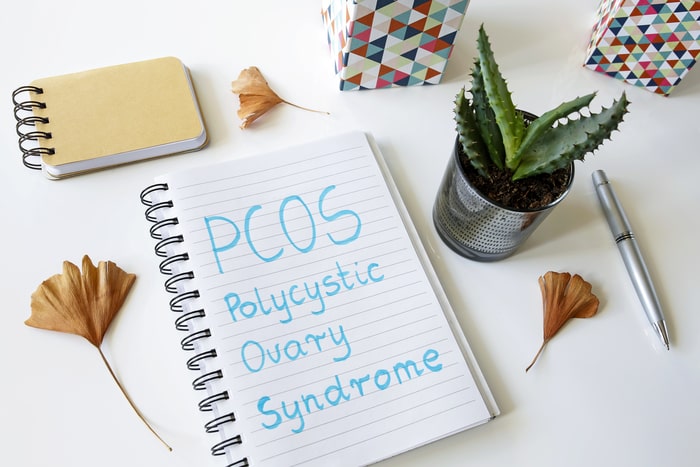Uterine fibroids and Polycystic Ovaries are conditions that cause growths to form in female reproductive organs. Fibroids are benign, (not cancerous), tumors that spontaneously appear in the uterus. Polycystic Ovarian Syndrome causes cysts, (also not cancerous), that suddenly occur in one or both ovaries.
Both conditions can disrupt menstrual cycles, cause pelvic pain and impair fertility. Both have been linked to hormone imbalances. So is there a connection between fibroids and Polycystic Ovarian Syndrome (PCOS)?
What Causes Fibroids?
Fibroids are thought to be triggered by high levels of the female hormone, estrogen. When estrogen elevates, fibrous tumors often appear and grow in the uterus. The most likely time to discover fibroids? During pregnancy or just before menopause, when estrogen is spiking.
Probable Causes of Polycystic Ovarian Syndrome
PCOS occurs when an overproduction of hormones, called androgens, affect the ovary’s ability to develop and release eggs normally. The ovaries respond by developing cysts. The most likely time for PCOS is during a woman’s childbearing years, in her 20s and 30s.
Risk Factors for Fibroids
- Elevated levels of estrogen and progesterone
- Race (African American women have a higher incidence)
- Fibroids in your family
- Menstruation at an early age
- Obesity
Risk Factors for PCOS
- Elevated levels of androgens
- Elevated levels of insulin
- PCOS in your family
Are Women with One Condition, Likely to Develop the Other?
The medical consensus is that there is no connection between fibroids and PCOS. While both are influenced by hormone imbalances and can cause similar symptoms, they are separate medical issues and don’t appear to be related.
But a six-year study of 23,000 pre-menopausal African American women challenges this thinking. Boston University Slone Epidemiology Center examined the data and noted that the incidence of fibroids was 65% higher among women with PCOS, than those without. Why? One theory is that when androgens affect normal production and release of eggs, estrogen levels rise in response. And when estrogen rises, so does the incidence of fibroids.
Non-Invasive Fibroid Treatment
Are you experiencing abnormal periods, pelvic pain, or fertility issues? Fibroids or PCOS may be the cause. Get a medical assessment from Dr. McLucas when you contact the Fibroid Treatment Collective.
For information on how non-invasive fibroids treatment, learn more about embolization here.


